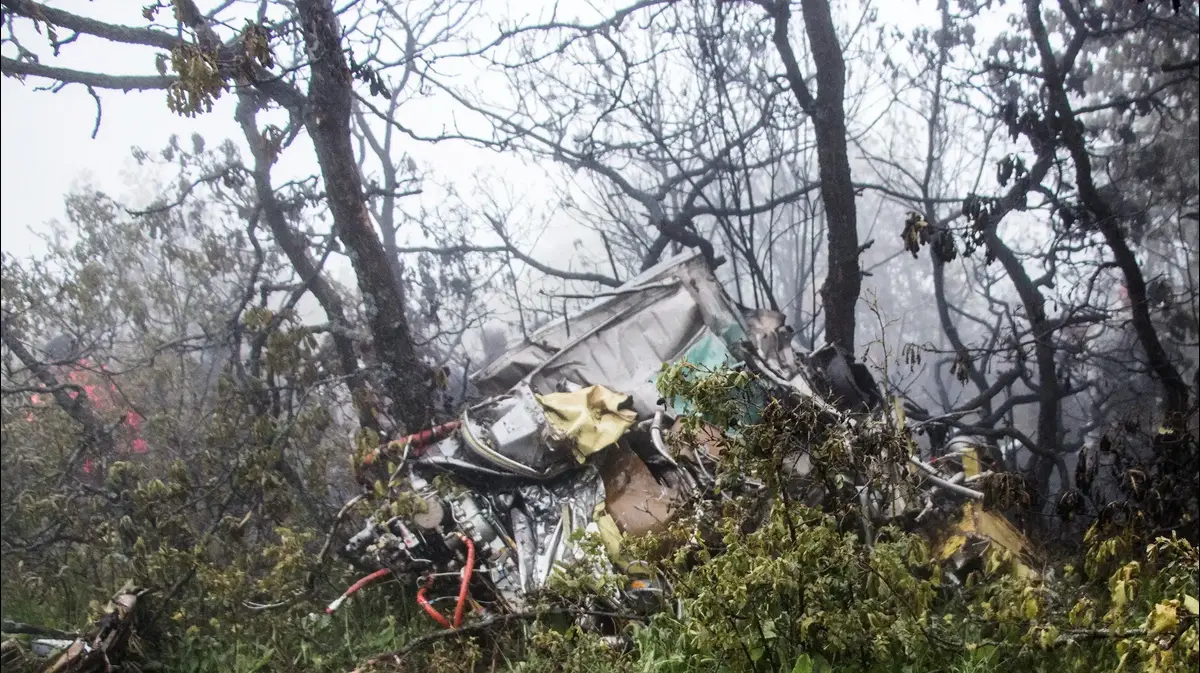In a tragic incident that has left Iran in mourning, President Ebrahim Raisi and several top officials perished in a helicopter crash in the mountainous region of East Azerbaijan. The Bell 212 helicopter, an aging model from the era of the Shah, went down amidst challenging weather conditions, complicating search and rescue operations significantly.
The crash, occurring near the border of Azerbaijan, also claimed the lives of Foreign Minister Hossein Amirabdollahian and six other passengers and crew members. Despite the complications due to American sanctions that have constrained Iran's ability to maintain its fleet of old aircraft, the United States, expressing official condolences, clarified it had no involvement in the incident. U.S. Defense Secretary Lloyd Austin commented on the matter, emphasizing the possibility of 'mechanical failure or pilot error' as likely causes. The logistic constraints prevented the U.S. from offering the requested rescue assistance.
Amidst mourning, Tehran has ordered a comprehensive investigation to uncover the exact causes of the crash. This accident happens at a sensitive time as Raisi was considered a potential successor to Supreme Leader Ali Khamenei. National mourning was declared by Ayatollah Ali Khamenei, who described Raisi as ‘tireless’ and lauded his contributions to the nation. Russia’s President Vladimir Putin also mourned Raisi as a 'true friend of Russia' and emphasized his role in enhancing Iran-Russia relations, especially in the context of the ongoing conflict in Ukraine.
The announcement of Raisi’s death has led to political uncertainty in Iran. The Iranian constitution mandates that presidential elections must be conducted within 50 days, with Mohammed Mohaber, Raisi’s first deputy, assuming the role of interim president. Experts suggest that the death may not result in significant changes in Iran’s foreign policy as the ultimate authority continues to rest with Supreme Leader Khamenei and the Revolutionary Guards. Raisi’s policies had aligned closely with those of Khamenei, ensuring smooth governance.
In Europe, where Raisi’s image is controversial due to his association with past regime atrocities, the reaction has been mixed. EU officials confirmed that they had provided satellite-based assistance to locate the wreckage. However, this has sparked outrage among some European politicians who labeled Raisi a mass murderer. Demonstrations also erupted in front of the Iranian embassy in Berlin, where supporters displayed posters highlighting Raisi's past role in human rights abuses.
Despite this tragedy, the possibility of major political upheavals in Iran remains limited. Analysts from various think tanks highlighted that changes in leadership are unlikely to lead to a shift in Iran’s strategic directions unless there is a more significant regime change. The continuity of Iran’s security and foreign policies appears to be intact under the prevailing leadership of Khamenei and the Revolutionary Guards.
- The rescue operations faced significant hindrances due to adverse weather. The region experienced snowfall, making the terrain more treacherous for the search teams. Advanced technology including drones from Turkey, equipped with infrared and thermal cameras, was employed to locate heat sources suspected to be the helicopter wreckage.
- In the lead-up to this accident, Iran’s military and civil aviation sectors have been heavily impacted by decades of sanctions, particularly those imposed by the United States. These sanctions have exacerbated the difficulties in maintaining and procuring parts for their aging fleet of aircraft.
- Political experts believe that Raisi's death, although significant, will primarily result in short-term political instability but is unlikely to alter the existing power structures or the country's strategic policies.
- On social networks, the accident quickly became the main topic of conversation among Iranians and the international community, evoking a blend of sorrow and anxiety. State-run media urged people to stay informed through official channels, amid speculations and misinformation circulated by foreign broadcasts.






